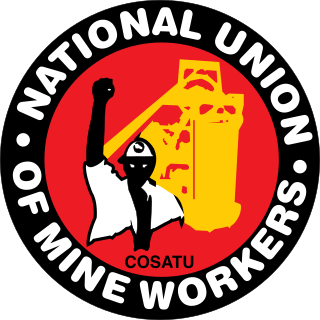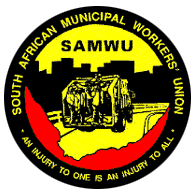
The economy of Kenya is market-based with a few state enterprises. Kenya has an emerging market and is an averagely industrialised nation ahead of its East African peers. Currently a lower middle income nation, it plans to be a newly industrialised nation by 2030. Major industries include agriculture, forestry, fishing, mining, manufacturing, energy, tourism and financial services. As of 2020, Kenya had the third largest economy in Sub-Saharan Africa, behind Nigeria and South Africa.

The economy of South Africa is the second largest in Africa and the most industrialized, technologically advanced, and diversified economy in Africa. South Africa is an upper-middle-income economy, one of only eight such countries in Africa. Following 1996, at the end of over twelve years of international sanctions, South Africa's nominal gross domestic product (GDP) almost tripled to a peak of US$416 billion in 2011. In the same period, foreign exchange reserves increased from US$3 billion to nearly US$50 billion, creating a diversified economy with a growing and sizable middle class, within two decades of ending apartheid.

The economy of Bangladesh is a major developing market economy. As the second-largest economy in South Asia, Bangladesh's economy is the 37th largest in the world in nominal terms, and 25th largest by purchasing power parity. Bangladesh is seen by various financial institutions as one of the Next Eleven. It has been transitioning from being a frontier market into an emerging market. Bangladesh is a member of the South Asian Free Trade Area and the World Trade Organization. In fiscal year 2021–2022, Bangladesh registered a GDP growth rate of 7.2% after the global pandemic. Bangladesh is one of the fastest growing economies in the world.

Pinkerton is a private security guard and detective agency established around 1850 in the United States by Scottish-born American cooper Allan Pinkerton and Chicago attorney Edward Rucker as the North-Western Police Agency, which later became Pinkerton & Co, and finally the Pinkerton National Detective Agency. It is currently a subsidiary of Swedish-based Securitas AB.
Civilians under international humanitarian law are "persons who are not members of the armed forces" and they are not "combatants if they carry arms openly and respect the laws and customs of war". It is slightly different from a non-combatant, because some non-combatants are not civilians. Civilians in the territories of a party to an armed conflict are entitled to certain privileges under the customary laws of war and international treaties such as the Fourth Geneva Convention. The privileges that they enjoy under international law depends on whether the conflict is an internal one or an international one.

A private military company (PMC) or private military and security company (PMSC) is a private company providing armed combat or security services for financial gain. PMCs refer to their personnel as "security contractors" or "private military contractors".

G4S is a British multinational private security company headquartered in London, England. The company was set up in July 2004 when London-based Securicor amalgamated with Danish firm Group 4 Falck. The company offers a range of services, including the supply of security personnel, monitoring equipment, response units and secure prisoner transportation. G4S also works with governments overseas to deliver security services.

The economy of India has transitioned from a mixed planned economy to a mixed middle-income developing social market economy with notable public sector in strategic sectors and indicative planning. It is the world's fifth-largest economy by nominal GDP and the third-largest by purchasing power parity (PPP). According to the International Monetary Fund (IMF), on a per capita income basis, India ranked 139th by GDP (nominal) and 127th by GDP (PPP). From independence in 1947 until 1991, successive governments followed Soviet model and promoted protectionist economic policies, with extensive sovietization, state intervention, bureaucrat driven enterprises and economic regulation. This is characterised as dirigism, in the form of the Licence Raj. The end of the Cold War and an acute balance of payments crisis in 1991 led to the adoption of a broad economic liberalisation in India and indicative planning. Since the start of the 21st century, annual average GDP growth has been 6% to 7%. The economy of the Indian subcontinent was the largest in the world for most of recorded history up until the onset of colonialism in early 19th century. India accounts for 7.2% of global economy in 2022 in PPP terms, and around 3.4% in nominal terms in 2022.

The National Union of Mineworkers (NUM) is a mainly mining industry related trade union, an organisation of workers with common goals through organised labour, in South Africa. With a membership of 300,000 as of 2014, it is the largest affiliate of the Congress of South African Trade Unions (COSATU).

The South African Municipal Workers Union (SAMWU) is the largest union in local government in South Africa.
Trade unions in South Africa has a history dating back to the 1880s. From the beginning unions could be viewed as a reflection of the racial disunity of the country, with the earliest unions being predominantly for white workers. Through the turbulent years of 1948–1991 trade unions played an important part in developing political and economic resistance, and eventually were one of the driving forces in realising the transition to an inclusive democratic government.

A private security company is a business entity which provides armed or unarmed security services and expertise to clients in the private or public sectors.
Private police or special police are law enforcement bodies that are owned and/or controlled by non-governmental entities. Additionally, the term can refer to an off-duty police officer while working for a private entity, providing security, or otherwise law enforcement-related services. These officers do have power to uphold the laws under the discretion of the private company.
The Alberta Union of Provincial Employees (AUPE) is a Canadian trade union operating solely in the province of Alberta. With approximately 95,000 members as of March 2019, it is Alberta's largest union. AUPE is primarily a public sector union, with members employed in government, health care, education, boards and agencies, municipalities, and occasionally private companies.

A security guard is a person employed by a government or private party to protect the employing party's assets from a variety of hazards by enforcing preventative measures. Security guards do this by maintaining a high-visibility presence to deter illegal and inappropriate actions, looking for signs of crime or other hazards, taking action to minimize damage, and reporting any incidents to their clients and emergency services, as appropriate.

Indian labour law refers to law regulating labour in India. Traditionally, the Indian government at the federal and state levels has sought to ensure a high degree of protection for workers, but in practice, this differs due to the form of government and because labour is a subject in the concurrent list of the Indian Constitution. The Minimum Wages Act 1948 requires companies to pay the minimum wage set by the government alongside limiting working weeks to 40 hours. Overtime is strongly discouraged with the premium on overtime being 100% of the total wage. The Payment of Wages Act 1936 mandates the payment of wages on time on the last working day of every month via bank transfer or postal service. The Factories Act 1948 and the Shops and Establishment Act 1960 mandate 15 working days of fully paid vacation leave each year to each employee with an additional 7 fully paid sick days. The Maternity Benefit (Amendment) Act, 2017 gives female employees of every company the right to take 6 months' worth of fully paid maternity leave. It also provides for 6 weeks worth of paid leaves in case of miscarriage or medical termination of pregnancy. The Employees' Provident Fund Organisation and the Employees' State Insurance, governed by statutory acts provide workers with necessary social security for retirement benefits and medical and unemployment benefits respectively. Workers entitled to be covered under the Employees' State Insurance are also entitled to 90 days worth of paid medical leaves. A contract of employment can always provide for more rights than the statutory minimum set rights. The Indian parliament passed four labour codes in the 2019 and 2020 sessions. These four codes will consolidate 44 existing labour laws. They are: The Industrial Relations Code 2020, The Code on Social Security 2020, The Occupational Safety, Health and Working Conditions Code, 2020 and The Code on Wages 2019.
Private police in the United States are law enforcement bodies that are owned and or controlled by non-governmental entities such as security agencies or private corporations. There is a strong overlap between the work of police and security, given that they share the same goals, perform the same activities and cooperate with one another, and often the same individuals work in both fields simultaneously, with police moonlighting as security officers. The overlap is even more pronounced when the police are private. Thus, it can be hard to draw a line between what is a private policeman and what is a public police officer. Private investigation is extensively used to investigate workplace crime.
The Western Cape 2012 Farm Workers' strike was a wave of strikes and protests by agricultural workers in the Western Cape from 27 August 2012 to 22 January 2013. The events led to the deaths of 3 workers, R160 million in damages as well as a 52% increase in the official minimum wage. The protests mostly took place the towns of De Doorns and Worcester with smaller protests in Ceres, Robertson, Grabouw, Wolseley and Villiersdorp. The main cause of the strikes was low worker pay of R69 per day and high unemployment.

The Misr Spinning and Weaving Company, also known as Misr Helwan or the El-Ghazl factory, is a large, publicly owned textile company located in El-Mahalla El-Kubra within the Nile Delta of Egypt, approximately 80 kilometers north of Cairo. The company's current board chairman is Mohamed Moheb Salah Elden. Egypt's largest industrial facility, Misr Helwan employs over 25,000 workers, many of whom have played an active role in Egyptian labor struggles. Large protests and strikes at Misr Helwan since 2006 contributed to the collapse of the Mubarak government, the 2011 Egyptian revolution, and the Arab Spring more generally.

Sibanye-Stillwater is a multinational mining and metals processing Group with a diverse portfolio of mining and processing operations and projects and investments across five continents. The Group is also one of the foremost global PGM auto catalytic recyclers and has interests in leading mine tailings retreatment operations.















